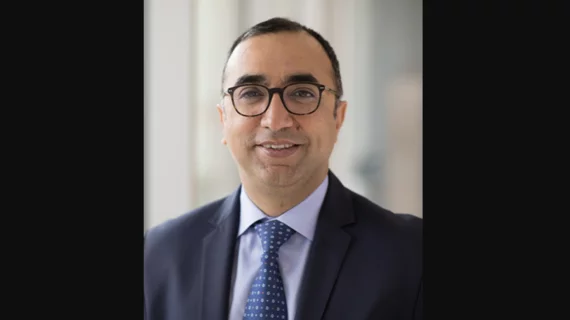First patients treated with Abbott’s new balloon-expandable TAVR valve
Abbott’s investigational balloon-expandable transcatheter aortic valve replacement (TAVR) valve for symptomatic severe aortic stenosis (AS) has been used to treat patients for the very first time. The company’s structural heart portfolio already includes the Navitor system, a self-expanding TAVR valve that received U.S. Food and Drug Administration approval in January 2023.
Azeem Latib, MD, section head and director of interventional cardiology and director of structural heart interventions at Montefiore Health System, and Vinayak Bapat, MD, chair of cardiothoracic surgery at the Minneapolis Heart Institute, performed the first-in-human TAVR implants with Abbott’s new valve in Tashkent, Uzbekistan.
According to Abbott, this new balloon-expandable TAVR valve is key step toward the company’s goal of developing a software-guided TAVR system that could go on to “build a foundation” for artificial intelligence (AI) guidance. Advances in software- and AI-guided TAVR could potentially help Abbott make a significant impact on a TAVR market largely dominated in the United States by the self-expanding Evolut valves from Medtronic and balloon-expandable Sapien 3 valves from Edwards Lifesciences.
“TAVR treatment has benefitted both physicians and patients over the years, but physicians have come to understand one device does not fit all their patients with AS,” Latib said in a statement. “We, and hospitals worldwide, remain focused on helping this growing patient population by investigating and providing expanded treatment options that adapt to the unique needs and anatomies of patients.”
“Abbott's experience in the TAVI market gives us a unique understanding of the remaining unmet needs, and we're applying this knowledge to develop future therapies to close that gap,” added Sandra Lesenfants, senior vice president of Abbott's structural heart business. “By closely partnering with physicians on research into new innovations, we're positioned to advance investigational therapies that have the potential to transform patient treatment.”

